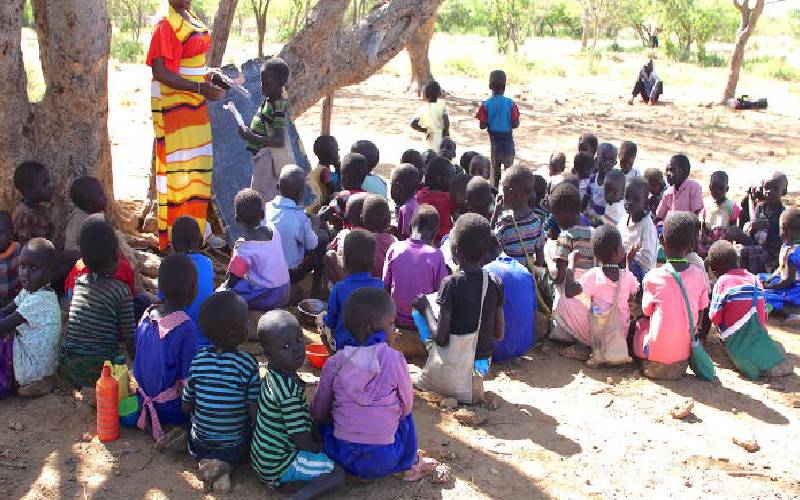×
The Standard e-Paper
Smart Minds Choose Us

Neddy Kipngetich, a teacher at Tuwo Primary Early Childhood Development Education centre in Tiaty, Baringo County, teaches her pupils under a tree. [Nanjinia Wamuswa, Standard]
The government is now mulling distribution of smart phones to all learners as part of immediate measures to boost home schooling under the coronavirus pandemic.